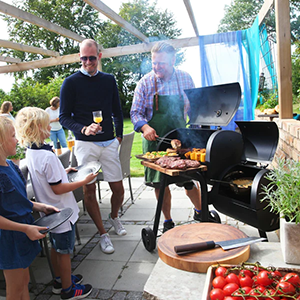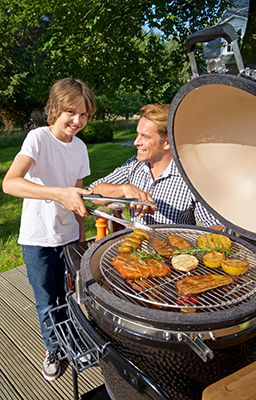What do we mean by barbecue?
Opinions vary widely on this. The word barbecue can mean anything, even within the English language there are differences. If an Englishman invites you to a barbecue, you can assume he will cook food quickly over a high flame. If you go to an American from the real barbecue regions (The South and The Southwest) for barbecue, you will often get food that has been slowly cooked through indirect heat (smoke).
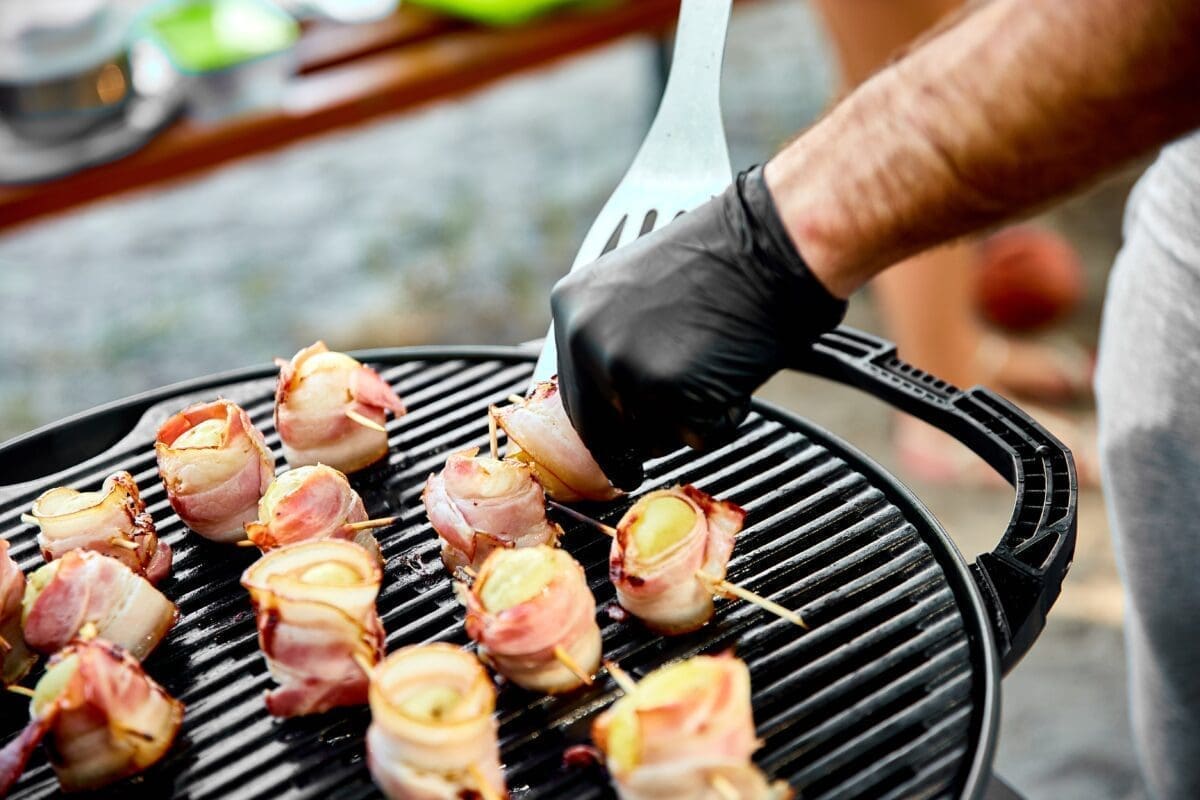
Direct grilling (Grilling)
Fast cooking of products on a grid placed directly over a very high temperature heat source. Ideally suited for smaller (thin) products that require little time to cook. Another word often used for direct grilling is roasting, but roasting is strictly cooking products on a hot plate.
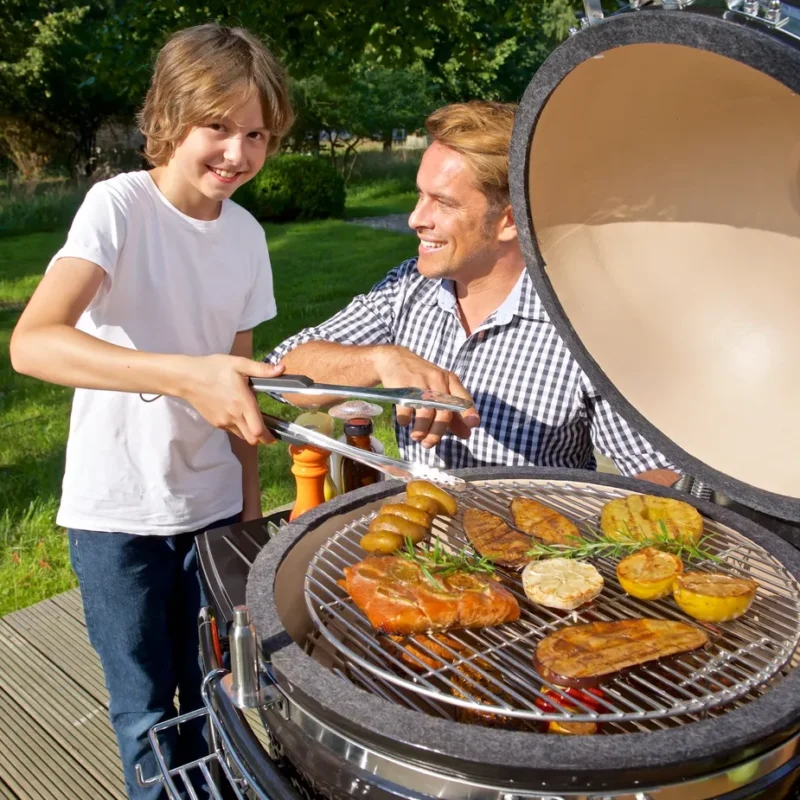
Indirect grilling (Barbecuing)
The (very) slow cooking of products in an enclosed space heated indirectly by a moderate-temperature heat source. Suitable for larger products that need longer time to cook.
Features of indirect grilling include the presence of a lid and the distribution of charcoal or briquettes over two or more zones so that products can cook without being directly over fire.
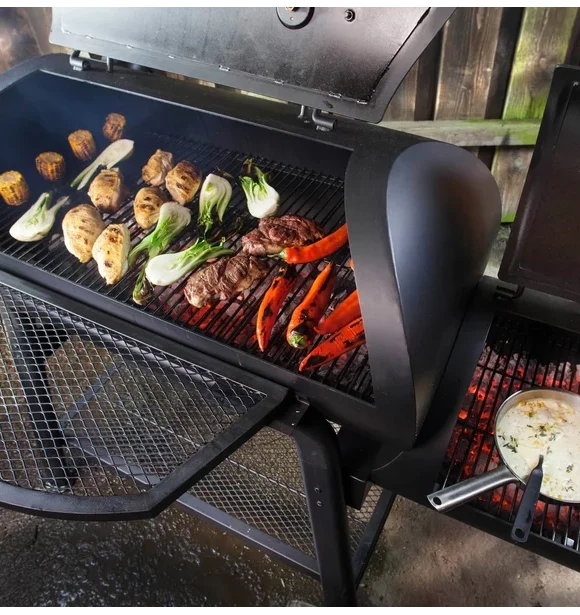
Smoking (Smoking)
A form of indirect grilling, where the heat source is placed in a separate part of the appliance, in which a strong smoke is generated that slowly cooks the food through (adjustable) vents.
Smokers are larger in size than most other barbecue appliances, making them suitable for “low & slow” cooking of more and/or larger products.
Ask a Dutchman or Belgian what barbecue means, and his answer will usually correspond to the English method, i.e. direct grilling. Say over a fire quickly roasting meat in the form of burgers, bacon strips, drumsticks, bratwurst and satay. American barbecue, indirect grilling using smoke, is still a rather unfamiliar concept with us, but one that is rapidly gaining popularity.
English barbecue (grilling) and American barbecue (indirect grilling or smoking) both take place outdoors, primarily use grills rather than pans and require (a charcoal) fire for cooking. The associated smell is perceived as pleasant by almost everyone and contributes significantly to atmosphere and perception. With that, the main similarities have been mentioned. However, there are also very big differences. Grilling is fast and requires a high temperature, while barbecuing is a slow process that requires a low temperature (“low & slow”). A direct consequence is that both methods require different food products. You can’t get a fluke cooked by grilling, and you’d rather not want a burger that has been cooking in the smoker grill for four hours. Besides the fact that food from the grill tastes different because of the preparation (and as a result has a different texture), you also have to deal with a different taste experience because of the type of meat. Moreover, very often the composition of your meal changes. When grilling, you usually choose diverse but small portions, when smoking, you generally prefer fewer diverse but larger pieces of meat.


